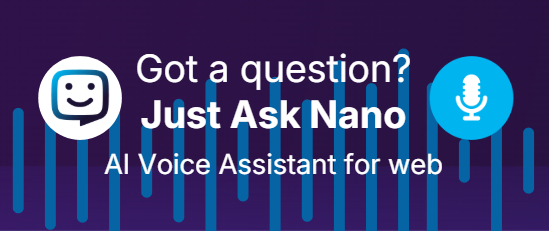
What are the new consumer standards for housing?
The revised consumer standards for Housing Associations have been in effect since April 2024, and with a number of landlords already being downgraded by the Regulator for Social Housing (RSH), it's clear to see why compliance with the standard is such a priority. As an overarching regulation, compliance with the consumer standards means that landlords must focus on delivering safe, high-quality homes while also maintaining strong relationships with tenants.
The Social Housing (Regulation) Act 2023 introduces a range of new requirements. The emphasis is on safety, transparency, and accountability, as well as ensuring that landlords act on tenant feedback.
Technology can often help housing associations to meet these stringent requirements and many HA's are looking at ways in which AI and customer service automation can help.
Here are 5 ways that AI is helping Housing Associations to comply with consumer standards
1. Ensure Safety and Quality Through Automation
Under the new Safety and Quality Standard, housing providers must ensure that tenants’ homes are safe and kept to a high standard. This can be a complex task, particularly for large organisations managing many thousands of properties. The administrative burden can be significantly reduced by:
- Automating regular safety checks and managing maintenance schedules: Intelligent systems can ensure that essential tasks like gas and electrical safety inspections are scheduled automatically. This ensures compliance with safety regulations while providing peace of mind to tenants.
- 24/7 Reporting for Safety Concerns: A Digital Assistant can provide tenants with an easy way to report safety concerns, such as damp, mould or faulty wiring at any time of the day. The AI system can then automatically escalate any urgent issues, ensuring a response well within the SLA, especially important for compliance with Awaab's Law.
- Tracking Maintenance Requests: Automation tools can use workflows to follow up on repair requests, ensuring that no maintenance issues slip through the cracks and that all properties are compliant with the expected standards.
2. Enhancing Transparency and Accountability
The new Transparency, Influence, and Accountability Standard states that Housing Associations must provide tenants with clear, accessible information and involve them in decision-making processes. Conversational AI is an enabler in achieving these outcomes by:
- Providing Real-Time Updates: Automation can be used to update tenants about the status of their repair requests, service changes, or inspection outcomes. This ensures that tenants are always informed and allows for seamless communication between tenants and landlords.
- Collecting Tenant Feedback via Surveys: Advanced AI chatbots can conduct automated surveys after services are delivered or issues are resolved. This helps housing associations to gather valuable insights into tenant satisfaction, enabling continuous improvement in service delivery.
- Boost Customer Engagement: With conversational AI, tenants can easily submit queries, raise concerns, or request information, enhancing transparency and building trust between housing associations and their tenants.
3. Streamlining Complaint Management
One of the core components of the new standards is ensuring that housing associations handle complaints effectively.
Conversational AI can enhance this process by:
- Automating Complaint Filing: Tenants can use AI Assistants to file and classify complaints at any time, urgent cases can notify systems or people to ensure they are given the priority required. Automation systems can then track these complaints and ensure they are addressed within the required timeframes.
- Escalating Complaints Automatically: If a complaint isn’t resolved promptly, an AI Assistant can escalate the issue automatically, ensuring that tenants receive timely and appropriate responses. This can help housing associations comply with the new expectations for rapid issue resolution.
4. Empowering Tenants and Supporting Scrutiny
The new regulations encourage housing associations to create an open dialogue with tenants and ensure that their voices are heard. Housing providers are required to act on tenants’ feedback and engage with them meaningfully.
Conversational AI can help in several ways:
- Facilitating Engagement: AI-powered platforms allow customers to voice their opinions and provide feedback, helping housing providers to better understand their concerns. Offering multiple communication channels such as voice and chat, and automatically pushing conversation dialogs into housing management and CRM systems can make this process seamless.
- Enabling Personalisation: Conversational AI tools can adapt to the specific needs of different tenants, helping them to feel heard and valued, for example providing services for non-English speakers. This personalised approach helps build stronger tenant-landlord relationships and ensures that tenants feel empowered to scrutinise services effectively.
5. Data Collection and Performance Monitoring
To meet regulatory requirements, housing associations need to collect, analyse, and act on a wide range of data related to tenant satisfaction, property conditions, and service delivery. Conversational AI and automation offer housing providers the ability to:
- Monitor Performance Metrics Automatically: AI systems can collect data on tenant satisfaction, safety issues, and service performance in real-time. This helps housing associations track compliance with the new standards, identify areas for improvement, and take corrective action where necessary.
- Generate Actionable Insights: Automation tools can help by collating and analysing data to highlight trends and by generating reports that assist with decision making.
Conclusion: AI as a Key Tool for Compliance and Improvement
The 2024 consumer standards for housing have raised the bar for housing associations across the UK, and meeting these standards requires a more sophisticated approach to tenant engagement, complaint resolution, and service delivery.
Conversational AI and automation are proving to be valuable tools in achieving compliance, not only by helping providers to streamline their processes but by fostering greater accountability and transparency.
By leveraging AI to enhance service quality, improve communication, and ensure tenant safety, housing associations can both meet regulatory requirements and build stronger relationships with their tenants, leading to better outcomes for everyone involved.
To see our AI Assistant for Housing, or to talk through how we're helping Social Housing providers to deliver innovative tenant services click here to request a demo. You can also call our team directly on 0333 6000 360







